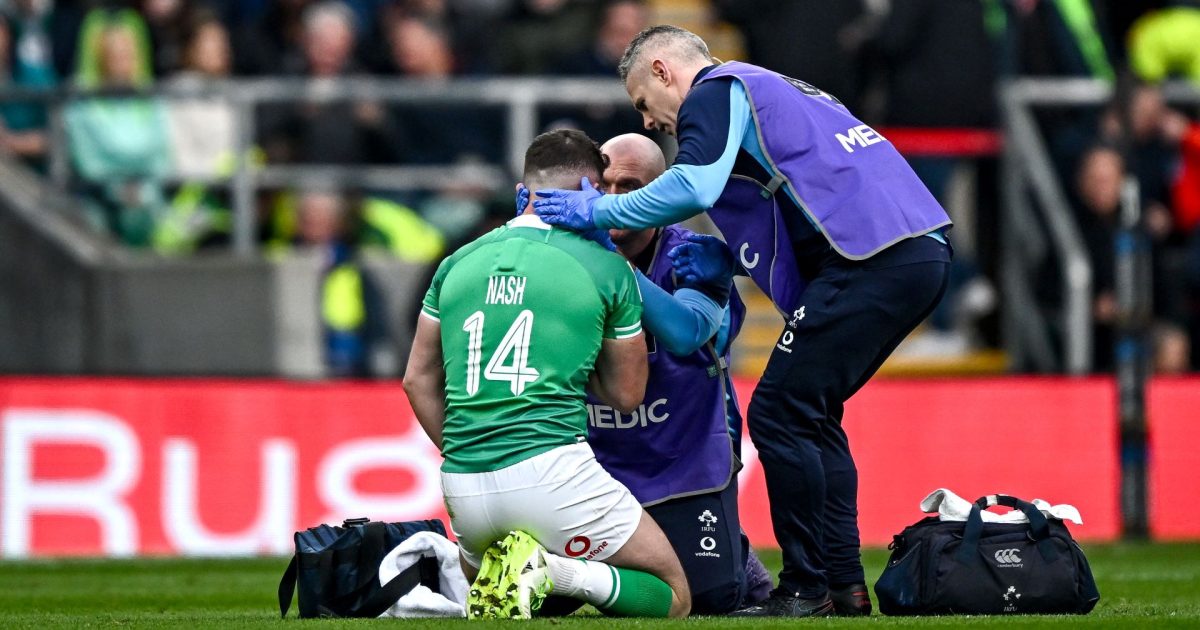World Rugby reveal plans to improve tech for identifying concussion

Instrumented mouth guards that light up to indicate a possible concussion could become a feature of the community game, according to World Rugby’s chief medical officer Dr Eanna Falvey.
The technology that measures head acceleration events and informs the matchday doctor if a player should depart for a head injury assessment is being phased into elite level rugby.
The men’s Six Nations was the first competition to use the mouth guards followed by the women’s championship and they will be adopted by each professional league and tournament as they start.
With concerns over concussion existing at all levels of the game amid a lawsuit filed against the governing bodies, it is seen as only a matter of time before the devices are adopted by juniors and amateurs.
A crucial obstacle is how to alert people that there may have been a head injury and, rather than transmitting the information to a tablet or mobile phone as currently happens, manufacturers are looking for LED lights to activate.
“Identifying big impact events where you’d like to have a player removed and assessed and/or sit out the rest of the training session or game would make a lot of parents whose children are playing rugby happier about them doing so,” Falvey said at World Rugby’s 2024 player welfare and laws symposium.
“Right now we have a matchday doctor stood on the sideline looking at an iPad, but in time there’s a possibility of the mouth guard actually lighting up.
“So we’d have a scenario where, if an impact threshold is exceeded for a player, the mouth guard will light up and other players and the referee will be able to see that.
“That’s a futuristic approach to this, but it could be a direction that has a lot of promising scope for the community game, helping to identify those players who need an assessment and/or to be removed from play.”
Another barrier to the technology being used more widely is cost, but this could effectively be driven down to the cost of replacing gum shields when required.
“The company that we are working with at the moment, Prevent, will probably have the ability to recycle the circuit boards in the mouth guard,” Falvey said.
“This means that if you have a kid who is playing and who has a mouth guard, there’s a possibility of using the same circuit board in a new mouth guard each year.
“That would significantly reduce the cost of replacing it. So essentially you would be reducing it to the cost of the mouth guard, not the technology itself.
“That creates the scope for this to be a very affordable piece of technology, more so than it is already.”
Figures released on Tuesday by World Rugby show that in the recent men’s Six Nations the mouth guards produced 13 alerts for a possible concussion, of which three players failed the subsequent head injury assessments.
An additional benefit of the mouth guards is that they enable data to be collected from every single head acceleration event, whereas previously it was only possible to measure when a player was withdrawn because of concussion at a rate of roughly one in 1,300 match contact events.
Over time this data will be accumulated to provide guidance on playing and training loads, as well as providing patterns across playing positions and styles of play.

























